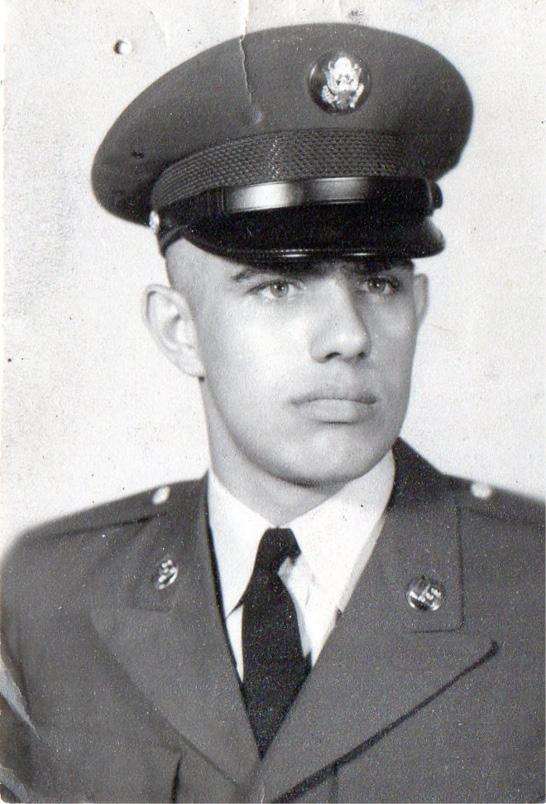The Ghost of Mistletoe Mary
Read The Ghost of Mistletoe Mary Online
Authors: Sue Ann Jaffarian


Titles by Sue Ann Jaffarian
Ghost of a Gamble
Ghost in the Guacamole
Novellas
The Silent Ghost
Dummy of a Ghost
The Ghost of Mistletoe Mary
A Ghost of Granny Apples Novella
Sue Ann Jaffarian
InterMix Books, New York

AN IMPRINT OF PENGUIN RANDOM HOUSE LLC
375 HUDSON STREET, NEW YORK, NEW YORK 10014
THE GHOST OF MISTLETOE MARY
An InterMix Book / published by arrangement with the author
Copyright © 2015 by Sue Ann Jaffarian.
Excerpt from
Ghosts of Misty Hollow
copyright © 2016 by Sue Ann Jaffarian.
Penguin supports copyright. Copyright fuels creativity, encourages diverse voices, promotes free speech, and creates a vibrant culture. Thank you for buying an authorized edition of this book and for complying with copyright laws by not reproducing, scanning, or distributing any part of it in any form without permission. You are supporting writers and allowing Penguin to continue to publish books for every reader.
INTERMIX and the “IM” design are trademarks of Penguin Random House LLC.
For more information about The Berkley Publishing Group, visit
penguin.com
.
eBook ISBN: 978-0-698-40811-1
PUBLISHING HISTORY
InterMix eBook edition / December 2015
This is a work of fiction. Names, characters, places, and incidents either are the product of the author's imagination or are used fictitiously, and any resemblance to actual persons, living or dead, business establishments, events, or locales is entirely coincidental.
Penguin Random House is committed to publishing works of quality and integrity.
In that spirit, we are proud to offer this book to our readers; however, the story, the experiences, and the words are the author's alone.

Version_1
For my brother, Thomas A. Jaffarian, a Viet Nam veteran.
August 24, 1947âMay 20, 2015

Cardboard lean-tos, small colorful tents, and plastic tarps lined the streets like crude Monopoly houses on a cracked and littered game board. Parked next to some of them were shopping carts filled with street debris and the few personal belongings of the occupants of the makeshift homes. Some of the more unfortunate slept out in the open, without the benefit of cover.
The early-morning quiet was disturbed only by the occasional passing vehicle or phlegmy coughing of the street's residents. Somewhere nearby, a dog barked. The bark wasn't tough and eager, but plaintive, cutting its way through the gray morning like the whining of a sick child. Jeremiah Jones heard the dog's bark and recognized it as that of Lola, the tiny scruffy mutt that belonged to Bucket, one of the many broken and discarded people who called the cold streets of downtown Los Angeles home.
Jeremiah was on San Pedro Street where it intersected with 5th Street. The December air was damp and chilly, tainted with the smell of lingering exhaust and urine. The light had turned green but he didn't move through the intersection. Instead, he sat astride his motorcycle, visor up on his helmet, and continued to take in the atmosphere around him. No one cared that he didn't move. At six a.m. on a Sunday, with sunrise barely showing, there were very few drivers in downtown LA to complain.
Jeremiah had once called these streets home. It had been for a very short time, no more than six months, right after he'd returned home from Viet Nam, but he'd never forgotten, not for a single day, what it felt like to have an empty belly, a concrete bed, and no hope.
Lola whined again. Jeremiah turned his head in the direction of the sound. He'd come downtown this morning to seek out Lola's master, but first he wanted to find Red Watkins, the man who had contacted him about Bucket. He shifted on his bike, stretching out his back. At sixty-eight, sometimes riding it was hard on his aging body, but he loved the freedom of roaring down the road astride the hefty vehicle and knew he wouldn't give it up until he could no longer lift his long legs to mount it.
Downtown Los Angeles was home to several homeless outreach programs, including the well-known Union Rescue Mission founded in 1891 and located at San Pedro and 6th streets just a block ahead of him. Another block to his right was the Los Angeles Mission. Founded in 1936, it occupied a huge chunk of real estate at the corner of 5th and Wall streets. Jeremiah had always found it ironic that in New York Wall Street was the center and icon of financial greed. In Los Angeles, it was in the center of Skid Row.
Red Watkins managed City of Angels Veterans Outreach. A small nonprofit that started up during the Viet Nam War, it didn't provide services as much as helped homeless and poor veterans maneuver the various agencies offering such services so that the veterans could find and receive the help they needed, such as food and shelter, legal assistance, and healthcare. Red and his small team helped their clients fill out and file forms and often provided rides to doctor appointments. They
held legal clinics and collected warm clothing and personal hygiene articles to pass out. They even coerced local produce companies and restaurants to give them food earmarked for disposal, which was then distributed. For those veterans not strung out on booze or drugs or whose emotional problems could be stabilized, they cleaned them up and helped them find jobs. The goal of Angels was to get as many veterans, men and women who had sacrificed so much to serve their country, off the streets and back into mainstream society to live productive lives.
Jeremiah Jones was one of their success stories. He'd returned from Viet Nam suffering from PTSDâpost-traumatic stress disorderâand depression. Over time, Angels helped him get the help he needed. He not only returned to his family, but married and went on to become a Los Angeles homicide detective. Now that he was retired from the police force, he operated his own private detective agency. Jeremiah also believed in giving back and often gave his time to Angels whenever they needed him. Red had contacted him yesterday looking for help with Bucket.
Bucket's staked-out spot was on San Pedro just beyond the intersection, but Jeremiah turned his motorcycle right and slowly headed up 5th Street. At Wall Street, he turned right again. The offices of City of Angels Veterans Outreach were located in an old storefront on the left just a few yards from the intersection and just around the corner from the Los Angeles Mission. Small convenience stores and dumpy businesses selling shabby clothing, knock-off electronics, and other cheap items, lined the streets in this area, including around the office of Angels. These wouldn't open for a few hours yet, their roll-down security gates currently shut tight like rusty silver eyelids closed in sleep. Almost all blank walls in this area were covered in graffiti, some of it talented artwork, but mostly it was garish vandalism.
Jeremiah pulled a U-turn in front of the Angels office and stopped at the curb. Its large glass window was mostly painted over with its name and the types of assistance it provided, but the lights were on and cast a hopeful but tenuous shine onto the dingy street. In a nod to the holiday season, colored lights outlined the window on the inside in red and green for their Christian clients and in blue for their Jewish clients. Elsewhere on the street, in windows and hanging from lampposts, were other signs of the impending holiday season. On the sidewalk on either side of the Angels office, people wrapped in dirty sleeping bags and rags lay on the ground or sat propped up against the buildings next to carts filled with their belongings. Some stirred, but others were still asleep, most likely sleeping off drunkenness from the night before. None took much notice that the holidays were upon them.
In a narrow space between the buildings housing Angels and its neighbor, a tall black man dressed in old jeans and a worn olive-green field jacket over a gray hoodie was peeing against one of the walls. When he was done, he emerged from the space, walking with a pronounced limp, and lit a stubby cigarette butt with a cheap plastic lighter the color of canned creamed corn. Jeremiah watched him. He'd seen him before while volunteering at Angels. His name was Sloan, Jeffrey Sloan, but he preferred to be called simply Sloan. He wasn't much more than thirty and had fought in Afghanistan. The limp was from a prosthetic leg that didn't fit properly. Sloan didn't appear to be hungover from either drugs or booze this morning, although Jeremiah remembered him having a drinking problem. Jeremiah called him over. “Hey, Sloan, want to make a few bucks?”
The man looked at Jeremiah warily, like a stray dog worried about Animal Control, before taking a few awkward steps toward him. “What do I have to do?” If he recognized Jeremiah, he didn't show it.
“Watch my bike for me,” Jeremiah told him as he dismounted and took off his helmet. “I have a short meeting inside with Red Watkins.” He jerked a thumb toward the Angels' window. “I'll give you five bucks.”
After a few seconds, Sloan said, “Yeah, that's cool. I'll do it.” He came closer and his dull brown eyes sparked for a second with recognition. “Hey, I know you. Didn't you and I talk a couple of times at Angels?”
“Yes,” Jeremiah said with a single nod. “How've you been doing, brother?”
Sloan took a deep drag from his cigarette, shrugging as he exhaled. “Some days are better than others, hear what I'm sayin'?”
“Ya, it's like that,” Jeremiah agreed.
“Red has me in an AA program for vets. I'm trying to work it. He says if I can stay off the booze and drugs, he might be able to get me a steady job. He's hooked me up with a part-time one for now.”
“That's a great goal. Something worth shooting for.”
Sloan shrugged again. “Yeah, I've been sober almost six weeks, but it ain't easy, man. Especially out here.”
“I know what you mean,” Jeremiah said with encouragement, “but keep it up.” He studied Sloan's face. His eyes were clear, no sign of drug use or impairment of any kind. He also wasn't as dirty as some of the others on the street and neither were his clothes. If Red was working with Sloan, then he was also providing him with regular showers and access to clean clothing. It was part of Red's process of easing homeless people with promise back into mainstream society. It was a system based on rewards. As long as Sloan kept up with the AA meetings and stayed sober, he would earn simple but important rewards like showers and clothing, more and better food, and eventually even some part-time paid work and a safe but humble place to crash. Once he proved he was ready, he'd be set up with job interviews.
The administrators at Angels had learned over the years that homeless men and women couldn't be dumped back into society without rehabilitation, especially if they had been on the streets for any length of time. They had to be eased back into it and coached in things as simple as manners and speech, and given counseling. Some of their candidates had washed out, but the rewards system had more successes than failures. The men and women had to prove they were ready, and by earning the opportunities they also built pride and confidence in themselves. Red also preached pay-it-forward, and many of Red's successes returned to help their fellow veterans make the same transition or to provide support and help for those who never would.
Jeremiah knew that if Sloan was almost two months sober and working part-time, he might already be set up in some sort of temporary housing, like a group home or a shared subsidized apartment nearby, where he could start rebuilding his life. Angels was careful not to overload their clients with too much stress at first. They wanted to avoid triggers that might send the people they were helping back to the waiting arms of their addictions.
“Thanks,” Jeremiah said, as he passed Sloan and headed for the door of the outreach organization. “I'll be out as soon
as I can.”
“No problem, man,” Sloan said, positioning himself closer to Jeremiah's motorcycle. “I got no place to go until breakfast at the Mission.”
The offices of City of Angels Veterans Outreach had had a makeover in the last year thanks, in part, to vandalism. The place had been broken into and nearly destroyed, bringing the tiny cash-strapped nonprofit to its knees and close to closing. That was when Rose Carson, the office manager, set about to fight her own war by strong-arming local politicians, celebrities, and business owners to finance the cleanup, literally begging for every dollar. It was slow going with most of the cash coming in dollar by dollar from people who couldn't afford it, but Rose and Red refused to give up. Then the plight of Angels caught the ear of a local journalist who did a human interest story for the
Los Angeles Times
. It had been buried on the back page, but had still managed to catch the eye of a local celebrity with a social conscience. He'd set up a page for Angels on GoFundMe.com and spread the word. Soon the organization had over eight hundred thousand dollars in its coffers, along with donations of repair supplies and new office equipment. Angels had been spared and along with it many desperate lives.
“Hey, Jeremiah,” Red Watkins said as he unlocked the front door and let Jeremiah in. He locked the door after him. Angels wasn't open for business yet and wouldn't be for a few hours. Red had asked Jeremiah to come in early so they could speak privately. The two men embraced warmly. “Thanks for coming.”
Originally the office space had been one very long room with a tiny bathroom and kitchenette at the back. Thanks to the recent renovation, the original office space had been carved in half to create more types of space. The front was separated into two areasâthe work area, which was crammed with desks, chairs, and file cabinets, and a small waiting area by the door. The two front areas were separated by a railing and a gate. Everything still smelled fresh and, more important, hopeful. Red led Jeremiah through the gate and the open area to the back half where a hallway now bisected a new wall that closed off part of the original space. On either side of the hallway were two tiny offices, one on the left and one on the right, both with glass windows that looked out onto the open area. One was Red's office. The other was used as a conference room. Red had wanted Rose to take the other office, but she had refused. She felt her place was up front, near the door where she could keep an eye on things, and that's where her large desk was located. You didn't buck Rose Carson when her mind was made up. Jeremiah knew that personally. He also knew she wouldn't be here for the meeting with Red, although she knew about it. Jeremiah had left her asleep back at her place. Last night over dinner, when he prodded her on more details about the meeting with Red, she'd only told him that Red would fill him in about Bucket in the morning. Rose didn't like work spilling into their private time.
Farther down the new hallway were the small kitchenette, now refurbished, and a small supply room on one side, and on the other side of the hall, Angels pride and joy. The tiny closet-size bathroom with its toilet and small sink still existed for employees and volunteers' use, but the contractor had added next to it a new bathroom that also included a small shower stall, a stackable washer and dryer, and a small bench. This was where clients could come and get cleaned up, and Jeremiah knew that almost every day there was a waiting list for its use. Both Red and Rose believed that if a man or woman felt clean
and were clean, it was the first step to reclaiming their dignity.
“Thanks for coming, Jeremiah,” Red said, showing him to a seat across from his desk. “Coffee? I just made a fresh pot.”
“Sure,” Jeremiah answered as he put his helmet on a corner of the desk and stashed his gloves inside before taking a seat. “Black.”
Red left and returned with two chipped mismatched mugs of hot, steaming black coffee. Jeremiah smiled as he took his first sip, knowing that none of the donated money had gone to luxuries like nice mugs. Rose would not have allowed that even if the organization's board had approved it. It had gone to remodeling the office and for a few extra items for the people they served. The rest was in the bank as a cushion in the event the usual annual donations dried up.
